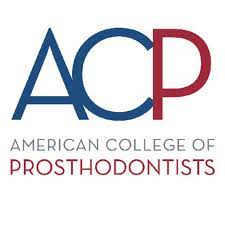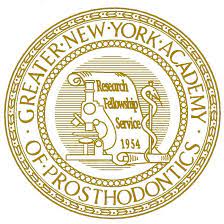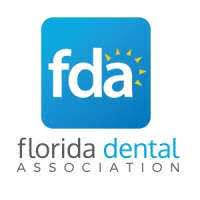Few things in life compare to dental sensitivity—not only due to its severity but also because of how much toothaches can impact your quality of life. The sudden sharp pain that springs every time you eat and drink something can make you unable to consume your favorite foods, frustrate you, and have you looking for an affordable dentist in Coral Gables for help.
Sadly, sensitivity is a complex issue that can arise from more than one factor. Depending on why you experience dental sensitivity and the area where the discomfort is located, a dental professional can help you in multiple ways.

Tooth sensitivity, also known as dentin hypersensitivity, is a common dental condition that causes sharp, temporary pain or discomfort in one or more teeth when exposed to specific stimuli. This pain can be sharp and sudden, shooting deep into the tooth nerve endings.
It can affect one tooth, multiple teeth, or all of a person's teeth, and it can be either a short-term or long-term issue. Moreover, it can occur in response to hot or cold temperatures, sweet or acidic foods and drinks, or even brushing and flossing.
Everyone feels some degree of pain when eating foods at extreme temperatures, especially cold ones. We have all tried to bite into a popsicle, only to feel a sharp sting. However, patients with dental sensitivity experience continuous discomfort, often in a specific area, and even with temperatures that aren’t as extreme.
People with dental sensitivity also experience pain in front of weather changes, like on extremely cold days, because it causes the constriction of blood vessels.
Dental sensitivity is often caused by the exposure of the underlying layer of your teeth, known as the dentin. This can occur as a result of erosion (wear and tear), gum recession, or dental treatments.
Tooth roots, which are not protected by hard enamel, contain thousands of tiny tubules that lead to your tooth's center (the pulp). These dentinal tubules (or channels) allow stimuli, such as hot, cold, or sweet food, to reach the nerve in your tooth. However, when they become exposed, they start causing pain.
Many factors can lead to sensitive teeth, including:
Tooth sensitivity isn’t always an indicator that something is wrong. The natural aging process, for example, leads to progressive erosion and gum recession. Infection-related pain tends to be more dull, sharp, and throbbing.
However, if you experience extreme tooth sensitivity that persists, contact a dentist immediately for additional guidance.

Treatment for tooth sensitivity varies based on its cause. The best course of action is to consult a dentist, who’ll first rule out the possibility of a dental fracture or a broken restoration. Then, they can suggest various treatment methods, such as:
There are several brands of toothpaste catered to people with sensitive teeth. Desensitizing toothpaste doesn’t cure sensitivity, but it can help reduce its symptoms.
These toothpastes contain substances like strontium chloride or potassium nitrate that block pain signals from reaching the tooth's nerve by blocking the tiny tunnels that connect your teeth to the nerve. With regular use, you should notice a decrease in sensitivity.
To find the product that works best for you, you might need to try a few different brands. Additionally, noticeable results can take several months to be noticeable.
Desensitizing toothpastes are only effective if they have the proper ingredients. When purchasing one, look for toothpastes that contain:
Plaque accumulation can cause tooth sensitivity, which can be eliminated through improved oral hygiene.
An improved brushing technique, focusing on going over each tooth and flossing daily, can help remove the discomfort and reduce the chances of developing other oral issues.
Additionally, make sure to use a soft-bristled toothbrush. This will reduce toothbrush abrasion on the tooth surface and irritation to your gums.
Frequent consumption of highly acidic foods can gradually dissolve tooth enamel, exposing dentin. These foods may also aggravate sensitivity and trigger the pain response.
Fluoride can strengthen tooth enamel and help prevent sensitivity. Use fluoride toothpaste, and consult your dentist about fluoride mouthwash or professional fluoride treatments.
Teeth grinding (bruxism) erodes enamel, exposes dentin, and causes sensitivity to hot, cold, and sweet foods. Besides morning sensitivity, some common symptoms of bruxism to look out for include flattened or chipped teeth and jaw soreness.
Sadly, enamel does not regenerate. Once worn down, it permanently exposes the sensitive dentin layer, so preventing further wear and tear is crucial. If this is your case, consider getting a custom mouthguard to wear at night.
In order to prevent enamel erosion and tooth damage, you should seek treatment for any underlying conditions that are contributing to your tooth sensitivity.
Acid reducers can be used to treat GERD, and a psychiatrist should be present to supervise bulimia treatment.
If you have cavities, cracked teeth, or gum disease, you should see your dentist immediately for treatment. If these dental problems are not treated, tooth sensitivity may worsen.
Moreover, even if sensitivity isn’t caused by these issues, your dentist can offer some pain-subsiding solutions, such as:
Yes. In certain instances, tooth sensitivity resolves on its own, particularly if it results from a recent dental procedure like a root canal or filling. You should consult a dentist if you experience persistent tooth sensitivity. You may have exposed tooth roots or worn enamel. In these situations, treatment may be necessary to address the problem.
The secret to avoiding sensitive teeth is to maintain your tooth enamel. To prevent or minimize tooth enamel damage, you can:

Dental sensitivity can be especially frustrating. First, identifying the cause is a challenging process, in which every possible cause may need to be explored. Then, finding the right solution for your pain can take some time, too.
However, if your discomfort isn’t subsiding, visiting a reliable dentist in Coral Gables Dentistry is the best way to go. We will explore your possibilities and try to find a solution that allows you to eat and drink all of your favorite foods again. So, reach out today to set an appointment!

We value your time, so we always run on schedule, respecting your commitments, with no double bookings and minimal wait times. Experience dentistry like never before in our award-winning clinic.






